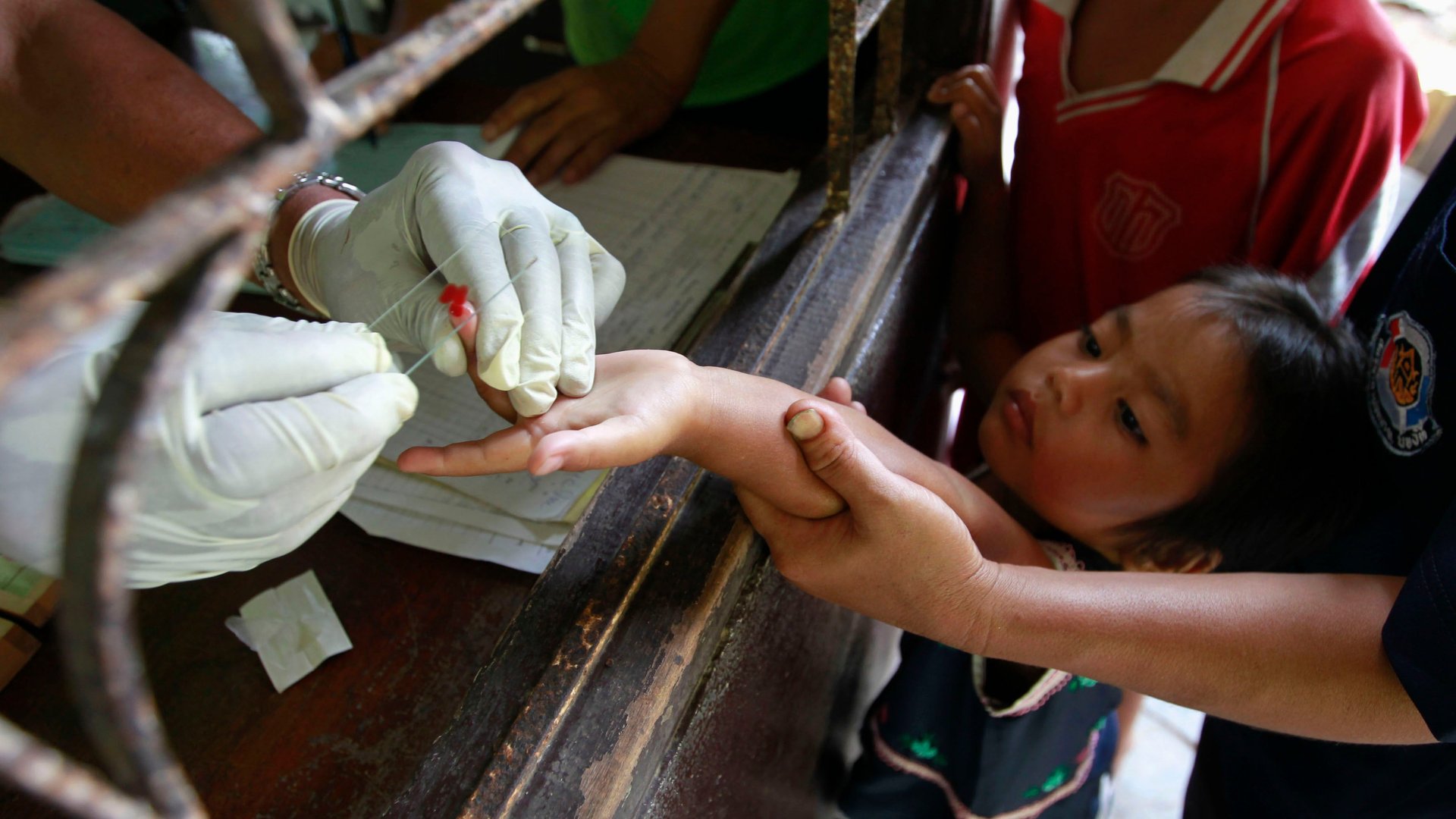Europe is now malaria free for the first time in years
Malaria cases in Europe have dropped from a peak of over 90,000 in 1995 to zero in 2015, according to the World Health Organization. This marks an important milestone in efforts to eliminate malaria globally.


Malaria cases in Europe have dropped from a peak of over 90,000 in 1995 to zero in 2015, according to the World Health Organization. This marks an important milestone in efforts to eliminate malaria globally.
Nine countries in the European region had been affected by malaria, with Tajikistan and Turkey having the most cases. Progress against malaria in Europe was the direct result of an agreement between affected countries to shift focus from prevention to elimination (pdf). The WHO attributes success to improved surveillance systems, better mosquito control, and greater collaboration across borders. Other regions will undoubtedly try to replicate these strategies as efforts ramp up to eliminate malaria globally.
The WHO is quick to warn that the achievement in Europe is “extraordinary but fragile” (pdf). Malaria was previously eliminated from Europe in the 1970s, but returned in the 1980s. Without a sustained commitment it would be easy for malaria to reassert itself in the region, especially as international focus shifts to other parts of the world.
April 25th is World Malaria Day and, not by coincidence, this year’s theme is “End malaria for good.” Europe’s problems with malaria were minor compared to those in Africa or Southeast Asia. A tremendous effort will be required to achieve a global, smallpox-like victory. However, the situation in Europe at the very least provides health workers with a blueprint, not to mention a morale boost.